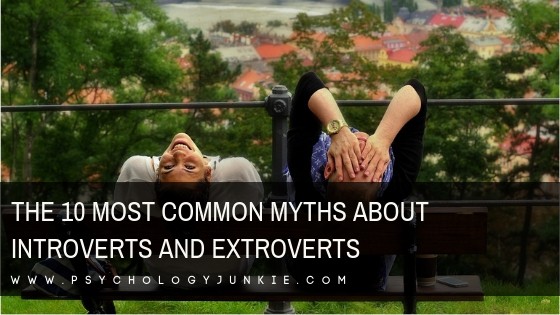The Unhealthy INTP
I’ve had several requests for an article about the unhealthy INTP. As always, I want to make sure that you know I have NOTHING against INTPs (in fact, they’re one of my favorite personality types to be with). This article will address some of the different ways INTPs can be unhealthy, whether that’s through a Ti-Si loop (read on if you’re not sure what that is), “grip” stress, or an imbalance of their function stack.
This article goes into a lot of depth about the INTP personality type and their cognitive functions. If you’re new to type theory this might be a little confusing. If you want to get a good introduction to the cognitive functions, check out this guide here.

Not sure what your personality type is? Take our new personality questionnaire here. Or you can take the official MBTI® here.
Table of contents
Estimated reading time: 11 minutes
The Basic, Healthy INTP
Healthy (balanced) INTPs are excellent at grasping underlying principles and truths and applying those to new concepts and frameworks. They are creative, innovative, and skilled at solving complex problems and creating models and ideas that can be altogether life-changing. They are usually interested in theorizing, exploring, and understanding how the world works. Albert Einstein, Marie Curie, and John Locke are all important people in history who have been rumored to be INTPs.
The INTP Function Stack:
Dominant Function: Introverted Thinking (Ti)
Auxiliary Function: Extraverted Intuition (Ne)
Tertiary Function: Introverted Sensing (Si)
Inferior Function: Extraverted Feeling (Fe)
5th/Opposing Role: Extraverted Thinking (Te)
6th/Critical Parent: Introverted Intuition (Ni)
7th/Trickster: Extraverted Sensing (Se)
8th/Demon: Introverted Feeling (Fi)
Some INTP Weaknesses:
INTPs will naturally value their top three functions a great deal (especially their dominant function). Like all types, they are at risk of having a warped or imbalanced perception of their other 5 functions (Yes, we DO use all 8 cognitive functions). As a result, INTPs can see their inferior Extraverted Feeling as intrusive, meddling, people-pleasing and desperate to be liked. They may stifle this function in themselves or devalue it in others. This can cause conflict between INTPs and FJ personality types.
Because Extraverted Thinking (Te) runs in the opposite direction of the INTP’s dominant Introverted Thinking (Ti), they can risk seeing it as domineering, controlling, or overly hasty. While unhealthy Te can actually be this way, INTPs can risk seeing all expressions of Te (healthy or unhealthy) this way. This can cause conflict between INTPs and TJ personality types.
Because Introverted Feeling (Fi) is the INTP’s 8th function, they can risk seeing it as overly-sensitive, useless, or incapable of accepting reality. INTPs may devalue introverted feeling or misunderstand Fi-users as a result. This can cause conflict between INTPs and FP personality types.
All of us, regardless of our type, need to be aware that all the cognitive functions are useful and valuable. There isn’t one that is inherently better than another! This way we can improve our relationships with other types who process things differently than we do and form better relationships.
The Unhealthy INTP
INTPs who are especially unhealthy or immature can function with a warped introverted thinking process. They can appear isolative, disinterested in others, or harsh. They may pride themselves on being extremely direct and unconcerned with social niceties, only to offend people they care about or who care about them. At work and in life they want most of all to avoid being interfered with. They will go to extreme lengths to be left alone.
In relationships, unhealthy INTPs can be brutal in their criticism of others, but they justify this by believing they are merely pointing out the truth. They hate being told what to do and will be difficult to manage in many work settings because they have such little interest in cooperating with a team or taking orders. Keeping up with deadlines, obeying traditional rules, or responding with empathy to the needs of their co-workers can hold very little importance to them.
INTPs who fall into this category have usually not had a healthy childhood or background with which to develop and appropriately express their functions. Either they were left to their own devices and not given any kind of guidance or good example to draw from or they were abused, ignored, or forced to “fend for themselves” at too young of an age.
Unhealthy Extraverted Intuition
INTPs can also develop a warped or imbalanced use of their auxiliary function, Extraverted Intuition (Ne). When this happens, they can become eccentric, overly focused on hypothesizing, and they can lose touch with what’s practical. They may try to mold their logic to fit in with a possibility or concept they want to realize. Introverted thinking is usually extremely objective and focused on what’s true, but an INTP with warped Ne may try to conform Ti to always back up whatever possibility they are currently excited about.
The Defensive INTP
INTPs tend to feel the most threatened when their independence is at stake. However, they can also feel threatened in situations that call on them to use functions they don’t have a very strong use of (like Fe, Te, Ni, Se, or Fi). When this happens, they can:
- A) Repress their own emotions, assuming they are irrelevant. They may shut out other people and feel that the only way to get by is to seclude themselves from others.
- B) They can use logical rationalizations to avoid getting involved in situations that seem threatening or make them feel incompetent. They can start to believe that any way of thinking, other than their own, is “wrong” and lose their signature open-minded nature.
More Mild Expressions of Imbalance:
Not every unhealthy INTP is going to fit the exact description above. They may struggle with certain issues mentioned, but not all. They may have minor “symptoms” of being unhealthy that are completely different. Here are some other weaknesses to look out for:
Because INTPs value Introverted Thinking to such a strong degree they can risk over-using it or relying on it at the expense of their other functions. They may appear overly critical, or they may become tied to their internal model or framework of how things work and refuse to accept new data. They can assume that they are right all the time and just shut people out who question their logic or methods. Healthy INTPs balance introverted thinking with extraverted intuition. When they come up with an internal framework of how the world works they leave their mind open for new ideas, new connections, and possibilities. But INTPs who repress Ne can become very rigid in their stance on things.
Because Introverted Sensing (Si) is the tertiary function of the INTP, they can have diminished access to it in early life or they may exhibit immature expressions of it at times throughout life. In early life, they can have trouble remembering details. As they get older they can become overly-focused on reviewing the past, getting stuck in particularly bad or embarrassing memories and feeling shame or anxiety about those memories. They may also rely on their own experience too excessively, using that experience to back up their judgments. They may discount other people’s experiences because they are so different from their own. This tends to happen more when INTPs are in a Ti-Si loop and they don’t have the balancing power of Ne to inform their perspective.
The Ti-Si Loop:
INTPs in a Ti-Si loop become immersed in their subjective logic and subjective experience. The healthy INTP balances Ti with objective intuition (Ne), and objective feeling (Fe). This allows him (or her) to bring their ideas out into the world and experiment with them tangibly. It also allows them to empathize with others and communicate their ideas in a way that people can relate to.
When INTPs repress Ne and Fe (their second and fourth functions) they can avoid situations and mindsets that would encourage personal growth. They get caught in a self-serving cycle of subjective logic and experiential data that supports their logic. They can resign themselves to being alone and they may feel unappreciated or feel that they are the only ones who really care about “the truth”. They may shy away from new experiences, new ideas, or the feelings and needs of other people. They become increasingly reclusive and lonely and set in their ways, and can seem more like unhealthy Si-users than auxiliary Ne-users.
The “Grip” Stress Phase:
INTPs who are experiencing extreme or chronic stress may fall into the grip of their inferior function, Extraverted Feeling. When this happens, their other functions become less conscious and they seem as if they are “not themselves”. If you suddenly see an INTP “flip a switch” and behave uncharacteristically, it is possible that they are experiencing grip stress.
INTPs who are normally logical, objective, and self-contained can become increasingly emotional, self-critical, edgy, and prone to outbursts when in the grip of Extraverted Feeling. Their normal logical mindset can become muddled and they may struggle to see things impersonally.
If you think you or someone you know might be dealing with a lot of stress, you can find tips specifically for their type here.

The Effect of the INTP’s Shadow Functions:
Every type can feel lost and overwhelmed when dealing with their 5th-8th functions. These “shadow functions” are more unconscious to us and harder for us to use in a controlled, effective way.
5th/Extraverted Thinking:
INTPs can bristle at demonstrations of Te, seeing it as overly-controlling, rigid, and domineering. They can also become oppositional with extraverted thinking, which is why it is given the title of the “opposing role”. They can become stubborn about how things are organized and insist on a particular systematic approach to how everything is done. They may subscribe to “black and white” binary thinking in defense of their principles. That said, INTPs can use Te effectively at times, employing it to organize and direct programs using effective principles they’ve garnered throughout life.
6th/Introverted Intuition:
The 6th function bears the title of “critical parent”, and this is because it is what is used to immobilize, set limits, and criticize one’s self or others. Ni may cause INTPs to cancel out plans for the future or give up on dreams and possibilities. It may cause them to develop a certain sense of failure over their potential and the possibilities they have in mind. At times Ni can be used in a transformative way, giving INTPs insights into a deeper meaning or positive direction for the future.
7th/Extraverted Sensing:
The 7th function bears the title of “the trickster” and this is because it is what’s used to capture others in double-binds and to protect the tertiary function (in the case of the INTP, Introverted Sensing) from attacks from others. INTPs can use extraverted sensing (Se) to focus on perceived “realities” and take impulsive action. They may use real facts and current details to trap people into “damned if you do, and damned if you don’t” dilemmas. That said, there are times when Se manifests in healthy ways and causes INTPs to enjoy the physical world and the present moment.
8th/Introverted Feeling:
The 8th function bears the title of “demon” and this is because it’s the most destructive and unconscious of all the INTP’s cognitive functions. INTPs are usually slow to choose what’s important to them and to create their own individualized values. They may inadvertently violate their own values and give their feelings and desires little to no recognition. When they use Fi it is often in a misguided or confusing way and they can feel completely out of their element when employing it. That said, there are times when they can use Fi to tap into their own values and transform their lives, finding purpose and meaning in dire circumstances.
Find out more about the shadow functions here.
All About INTPs
I Hope This Was Helpful!
Each type can be healthy or unhealthy or somewhere in between! Do you have any input or experiences you’d like to share with other readers? Let us know in the comments!
Find out more about your personality type in our eBook, Discovering You: Unlocking the Power of Personality Type.

Other Articles You Might Enjoy:
Can Childhood Trauma Impact Your Personality Type?
An Introduction to the Shadow Functions
10 Things You Should NEVER Say to an INTP
The Childhood Struggles of INTPs

Subscribe to Our Newsletter

Want to discover more about personality type? Get the inside scoop with Susan Storm on all things typological, along with special subscriber freebies, and discounts on new eBooks and courses! Join our newsletter today!










This is really helpful
Thank you so much for this article
My husband is an intp who has been struggling greatly over the past few years, this was very helpful as a tool to see how I might approach ways to understand why he may think the way he does.
I’m so glad this article was helpful, thank you for letting me know!
I’m an unhealthy intp. I could go on and on about the whys and wherefors but suffice to say, why do people think that because they have a codependent herd mentality that everyone should. There is almost 8 billion people on this poor little planet and how could it possibly be so bad if one of them doesn’t desire excessive interaction with the herd. I have no problem with the cuddling if they would just keep it to themselves. I don’t even know why they notice just one abnormal behavior. There are so many normal people to take up their time how could it possibly be such a focus on conformity. As much as people argue that they don’t just do things for the power trip the question begs that if not then why do it. If people would ignore me it would be like I don’t exist and I could be left in peace and how bad could that possibly be.
I don’t think the point is to mould us intp into following the herd, rather it seems to be more about aiming for a healthy social life. So, it’s a matter of a balance between our need to be alone and maintaining relationship with the people around us. The latter obviously requires social skills as people around us have different priorities and needs than ours, which also means that we don’t always agree. Relationships can take many turns and it is a good thing to not have the relationships you appreciate fall apart. To that end, behaving in ways that won’t raise unecessary conflicts is for the better. However, the balance of that is for you to decide, depending on how you perceive your relationships. So what I think the article is saying is healthy intps can make good judgement on the kinds of relationship they want to have and use their functions in a way that allows it to happen. It’s not about conforming to the social norms to the point that satisfies what the general collective society want.
I agree….it seems they go out of their way to seek us out and then remake us in their image!
Oh yeah. Fi is definitely a demon… I hate it. I hate thinking about what is important to me. I think it’s because it seems too emotional or something… I don’t even know how to describe. The closest is the feeling of digust, I guess. Also, though I love ENFPs and INFPs, there are my best friends, I don’t get their way of acting, sometimes. I try not to take it seriously because I would go out of my mind. It seems so childish and selfish to me.
Sorry for criticising, I had to get rid of these negative emotions.
I feel the same way. I feel this inadvertent sense of repulse of having to actually deal with my eternal emotions. It is like a magnet pulling me away from thinking about them. The times I usually feeling emotional is under stress or when I am caught up in the lives of fictional characters. I don’t enjoy the emotions and it is often easier for me to be emotionally detached.
I often feel the same way. There is a sense of internal repulse at the thought of actually having to deal with my emotions. The thought becomes more overwhelming when other asks you to “release” emotions as if it were that simple. I often don’t feel empathy as I should and don’t enjoy feeling emotions. I would like to operate with minimal/little emotion because to me it causes me more stress that it’s worth.
Very very helpful article with many supporting links! Hubby and I found your site seeking help in parenting our “gifted” child (and have found so much useable helps here), but found direction for ourselves as well! This particular article is presented factually and intuitively, and detailed that all “types” can process the information and use it. Thank you! Very pleased to find this resource. Very pleased to find a certified MBTI specialist who educates. So much out there seems rather anecdotal and while intriguing perhaps, rather useless for developing function. Again, grateful for this resource. 🙂
You are missing existential depression. Although it is its own thing, many INTP’s suffer from it. Part of that comes from our quest for the “essence” of things (eg the most pure ideal / theory of a given idea) which results in the realization that there is no meaning to anything in life other than the lies we construct in order to provide ourselves with a sense of stability and security. The other part likely comes from our stubbornness at accepting something that is not unique (eg knowing that the lies are necessary for a “happy” life yet refusing to live a life of lying to oneself).
I’m add/intp. I cannot even get healthy with some gogo pills. Children of damned, all around.
INTP here, how can be practice using our funcions healthily? The Ne, Si and Fe?
I think i know specific moments when I used the Te in social situations, I always feel guilty after that. Is that normal? It’s something I should avoid or embrace?